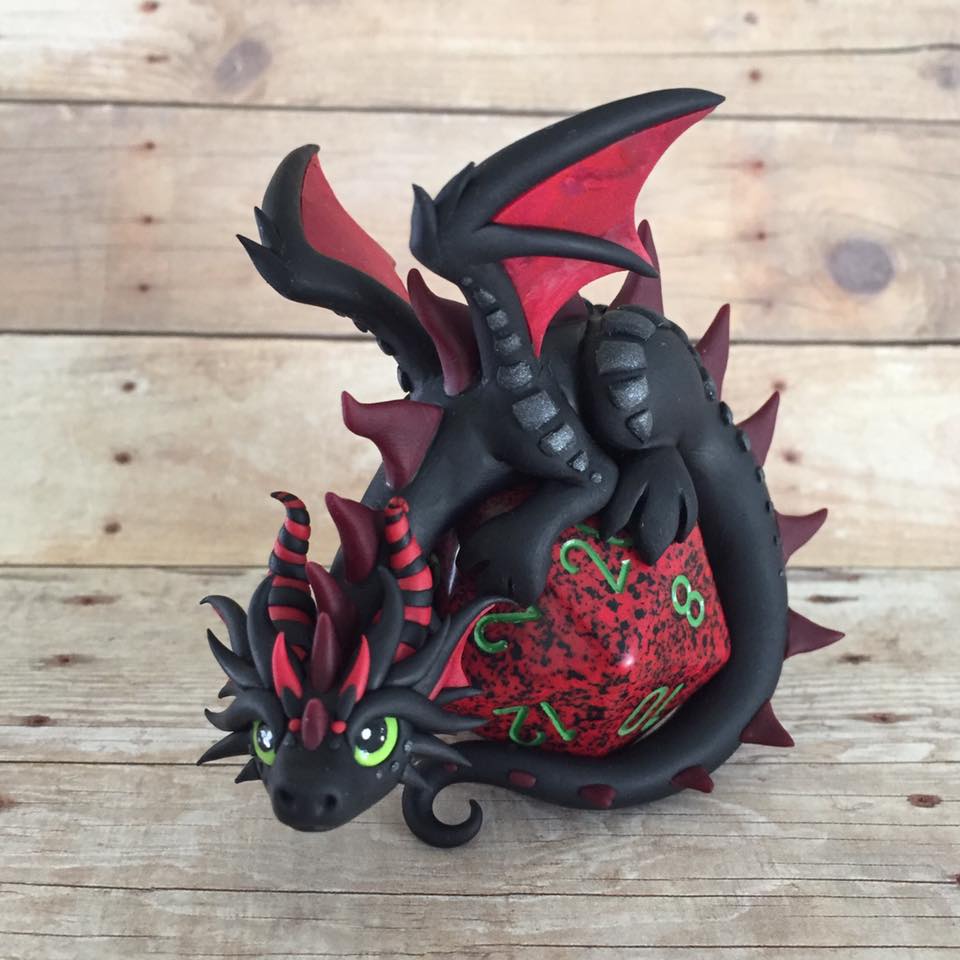Fighting Your Inner Demons by Fighting Dragons
❤ Definitions ❤
You
read that right. Dungeons and Dragons (D&D) has been found to help with
mental illness recovery. If you haven’t already read “Can Fighting Dragons Help
Your Autism”, read that first and come back here. (Here’s the link if you need
it: [link])
An article in the Australian Psychologist called “Defeating dragons and demons: consumers’ perspectives on mental health recovery in role-playing games” (a mouthful, I know) interviewed 13 participants in various stages of mental health and found that D&D played a significant role in their recovery.
❤ Definitions ❤
Okay, let’s get a quick definition out of the way. What does “mental health recovery” imply? According to the article, we’re talking about the “development of new meaning and purpose of life, as individuals grow beyond the catastrophic effects of mental health”.
❤ The Interview ❤
Now that that’s out of the way, what did the interview entail? There were just three questions with no follow-ups. The questions boiled down to their experience playing D&D, their experience playing their characters, and whether or not they believed D&D assisted their recovery.
First, they identified common themes in the transcriptions. A whopping 11 out of 13 participants said they used D&D to escape from the pains of their mental health. At the same time, another 11 of 13 (so there was overlap) used D&D to expose themselves to more difficult situations reminiscent of what they might face in the real world. 9 of the 13 discussed a significant connection to their character, with 8 of those 9 people mentioning feeling what their character felt.
I can relate to all of these. My characters, before I ran the game for my friends and family, were always glorified and perfected versions of myself. I would play the game so my character, my mirror self, didn’t have to go through the same things I did. When they did go through some tough times, I had an objective way out, something I could later use in real life when going through very similar things (i.e., racism towards my Tiefling who liked to hide who she truly was to avoid it vs. transphobia and literally getting kicked out because of who I was).
❤ Psychology Recovery Model ❤
Secondly, they identified how the stories fit within the stages of Psychological Recovery Model. This model uses five stages to track a level of recovery from mental health trauma. (Each of my definitions come from the University of Wollongong’s School of Psychology. I’ll link it below.)
1. Moratorium. A time of withdrawal poisoned with loss and hopelessness. One participant actually had a relapse of mental health problems when they realized they had made a character inspired by their ideal self and felt they couldn’t attain that status themself.
2. Awareness. Finding hope for the future and realizing a fulfilling life is possible. 3 of 13 participants made a connection between fighting monsters and fighting their inner demons. If the characters they’re playing can do it, why can’t they?
3. Preparation. Taking inventory of your strengths and weaknesses and working on developing skills regarding recovery. One participant specifically set out to make their character a personal mirror into a fantasy world and working to build coping skills vicariously through that character.
4. Rebuilding. Actively working towards a positive view of yourself, taking control of your life by setting concrete and meaningful goals. The 6 participants (almost half) that talked about this stated that they started making characters different from themselves and using those differences to promote the positive aspects of themselves. This is where I am. My characters are no longer reflections of myself. They aren’t perfect. They have their own flaws that provide drama and conflict. They have a personality separate from my own. Sure, I may still make funhouse mirrors, distortions of myself, like my Tiefling wizard, Morningshade, who cannot function without his morning cup of coffee like me but is also an introvert… Very much not like me.
5. Growth. Living a full and meaningful life, taking control of your illnesses rather than letting them take control of you. 2 of the 13 used D&D to reflect on coping skills, and, eventually, D&D evolved from a coping skill to just another hobby. I hope to get there some day, when D&D is nothing more than a fun time to spend with friends. I’m well on that path and between the social connections that I can’t really get out of without disappointing others (D&D) and general therapy, I know I will get there some day.
❤ Conclusion ❤
It’s pretty obvious but I absolutely adore Dungeons and Dragons. As someone with severe mental disorders, I can attest to the benefit D&D has given me. I meet up with people weekly or bi-weekly, making it impossible to seclude myself, one of my negative coping mechanisms. I get to throw myself into all sorts of characters with all sorts of aptitudes and flaws. If you haven’t played, I strongly recommend the game to everyone.
So, do you play D&D? Maybe you want to? How has D&D or other tabletop role playing games helped you? Leave a comment below.
Here’s those citations, by the way, for anyone interested in checking this out for themselves.
Andresen, Retta, et al. “Stages of Recovery Instrument: Development of a Measure of Recovery from Serious Mental Illness.” Australian & New Zealand Journal of Psychiatry, vol. 40, no. 11-12, 2006, pp. 972–980., https://doi.org/10.1080/j.1440-1614.2006.01921.x.
Causo, Francesco, and Elly Quinlan. “Defeating Dragons and Demons: Consumers’ Perspectives on Mental Health Recovery in Role-Playing Games.” Australian Psychologist, vol. 56, no. 3, 14 Mar. 2021, pp. 256–267., https://doi.org/10.1080/00050067.2021.1890983.

Comments
Post a Comment
Be respectful.